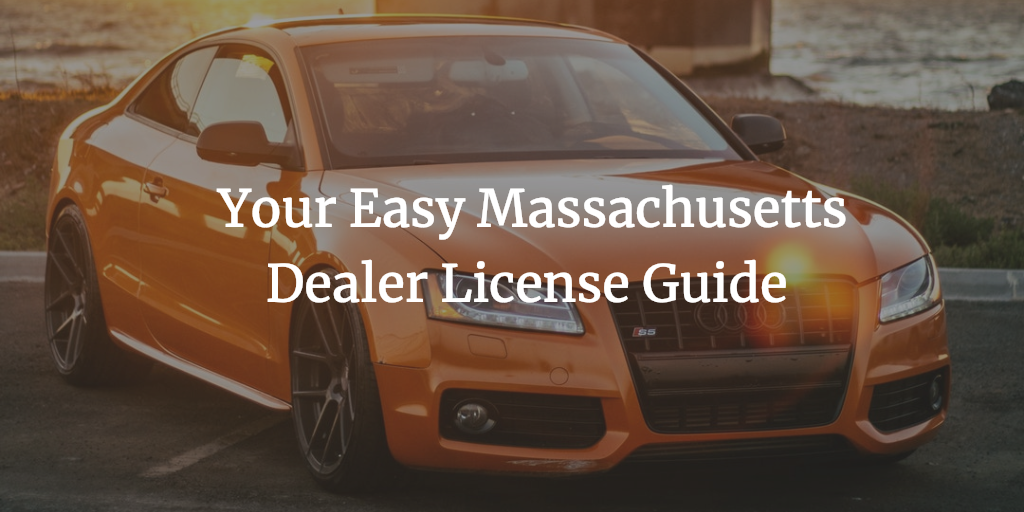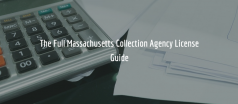How to Get a Massachusetts Auto Dealer License

Auto dealers in Massachusetts need to undergo a multistep licensing process before they can start their business. Obtaining your dealer license in Massachusetts is obligatory for opening a dealership.
Even though the requirement to get licensed is on a state level, the procedure for getting the license is regulated on a city level. Requirements for getting your dealer license vary from place to place. Yet, there are many similarities between the licensing procedures.
Looking to launch your operations as a dealer? Learn about the essentials of getting your dealer license in MA below!
1. Pick Your Massachusetts Dealer License Type
The Massachusetts Registry of Motor Vehicles (RMV) is the state body overseeing the activities of dealers.
However, the licensing procedures are set and executed by city or town authorities. In other words, the exact requirements for the Massachusetts dealer license application process differ though their limits are defined by Title XX, Chapter 140, Section 59 of the General Laws of Massachusetts.
Irrespectively of your location, there are three main classifications of licenses available in the state:
Class I: New and/or used vehicle dealer license
Class II: Second hand (used) vehicle dealer only
Class III: Salvage parts or Motor vehicle junk license
For more details about the license classifications, refer to Section 58 of the General Laws.
2. Fulfill the Massachusetts Dealer License Application Requirements
While the criteria that you have to meet vary depending on your local authorities, there is a list of common requirements applicable to all dealer applicants in Massachusetts.
Note that there are statewide requirements that apply to the different license types apart from local licensing requirements. For example, Class II license applicants must submit a surety bond in the amount of $25,000, whereas the other classes of dealers don’t.
Apply for your dealer license locally
Typically, you will have to complete a dealer license application form set by your town or city licensing body to complete the licensing process. Together with it, you will have to provide most of the following:
- Zoning compliance certificate
- Ownership or lease agreement for your business location
- Business entity documents for your LLC, corporation, or limited liability partnership
- Business certificate and trade name
- Employer tax ID
- Worker’s compensation insurance (if applicable)
- Franchise agreement for Class I licensees (new car sales)
- Proof of repair facilities for Class I licensees (new car sales)
- Purchase and Sales Agreement
- $25,000 surety bond for Class II licensees (used car sales)
In addition, every municipality requires a different licensing fee. By law, the amount of this fee cannot be over $200 though.
Get your dealer plates from the RMV
Once you have gotten licensed at the city or town level, you can also apply for a general dealer registration and dealer plate from the RMV.
This is a separate process from getting your dealer license, and you will need to fulfill a new set of criteria that are listed on the RMV website. Once you apply and your application and supporting documents are in order, your dealership will be inspected by the State Police.
Make sure to familiarize yourself with the general requirements for a dealer inspection and that you have met all the guidelines. If you pass the inspection successfully, you will only need to complete one further step, after which you will be issued a General Registration and dealer plate(s).
These are the general criteria that dealers in Massachusetts have to comply with. To get the full picture of the licensing requirements that you have to meet, make sure to contact your local authorities.
3. Getting Your Massachusetts Motor Vehicle Dealer Bond
If you’re applying for a Class II license as a second-hand dealer, you will have to obtain a Massachusetts motor vehicle dealer bond. The required amount is $25,000.
The purpose of the bond is to add a layer of protection for the state and your customers. It serves as a financial guarantee in case you commit any of the violations described in Section 58 of Chapter 140 of the MA General Laws. In case of such a violation, any harmed party can seek compensation by making a claim against the bond.
The bonding process entails that you cover a small percentage of the required bond amount. For applicants with stable finances, the typical rates are between 1% and 3%. This means that you can pay as little as $250 to $750 for a $25,000 dealer bond.
If you want to get a free quote on your bond, complete the form below and we will get in touch with you shortly!
-
1Get a FREE Bond QuoteInstant ballpark estimateStart Your Application
-
2Tell us about your businesspowered by

-
3Get your FREE quote today!
4. Renewing Your Dealer License in Massachusetts
All dealer licenses in the state, regardless of where they are issued, expire on January 1, following the date of issuance. To renew your license, contact your local licensing office and inquire about the requirements.
If you have a class 2 dealer license in Massachusetts, you will also need to renew your bond, along with your license.
We’re here to help. If you have any questions about getting your Massachusetts motor vehicle dealer bond, call us at 866.450.3412!



